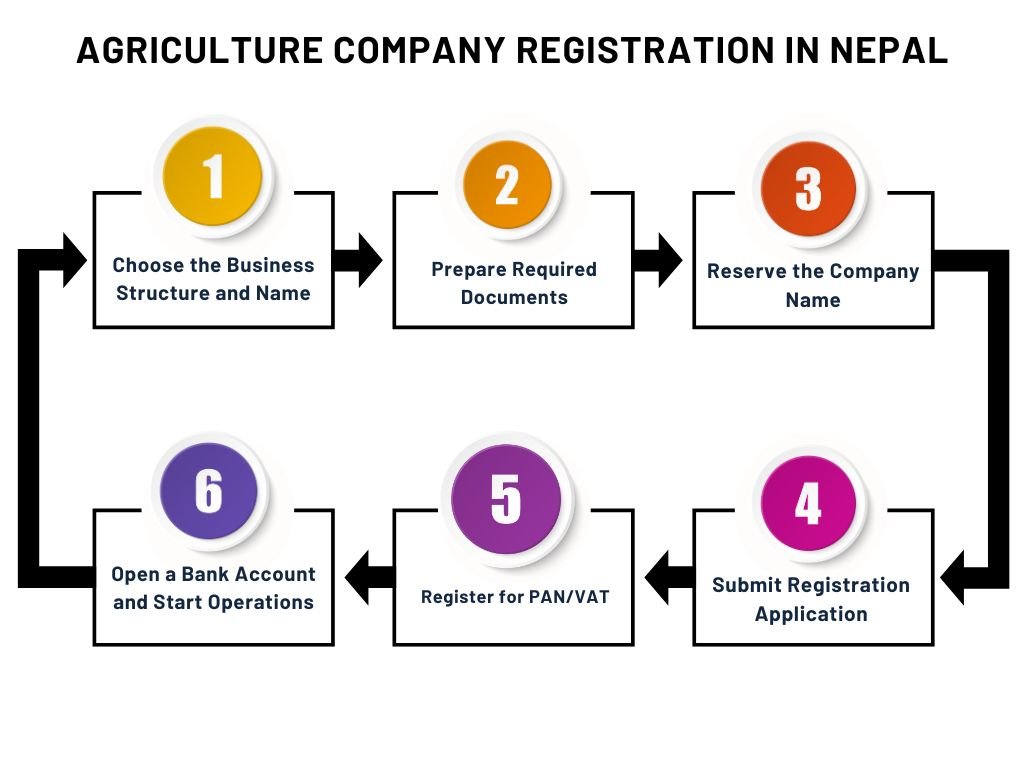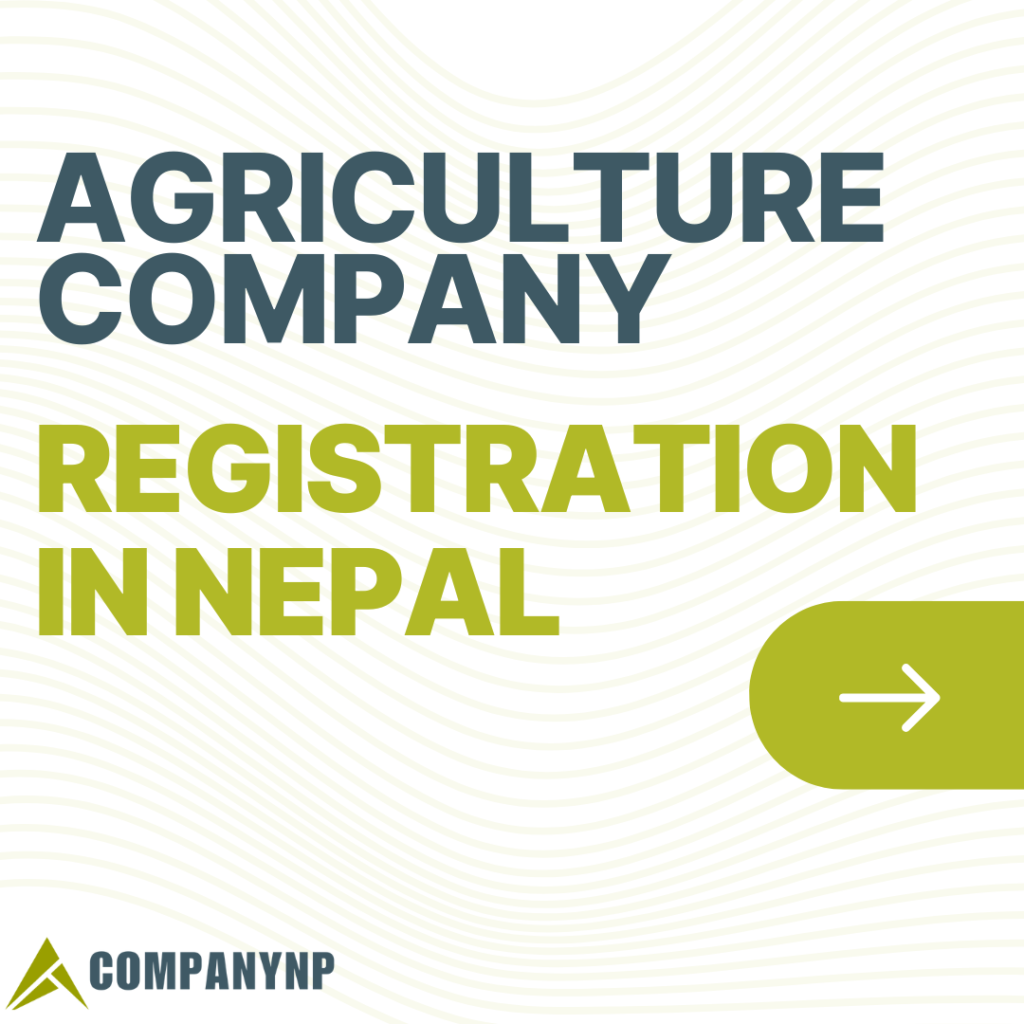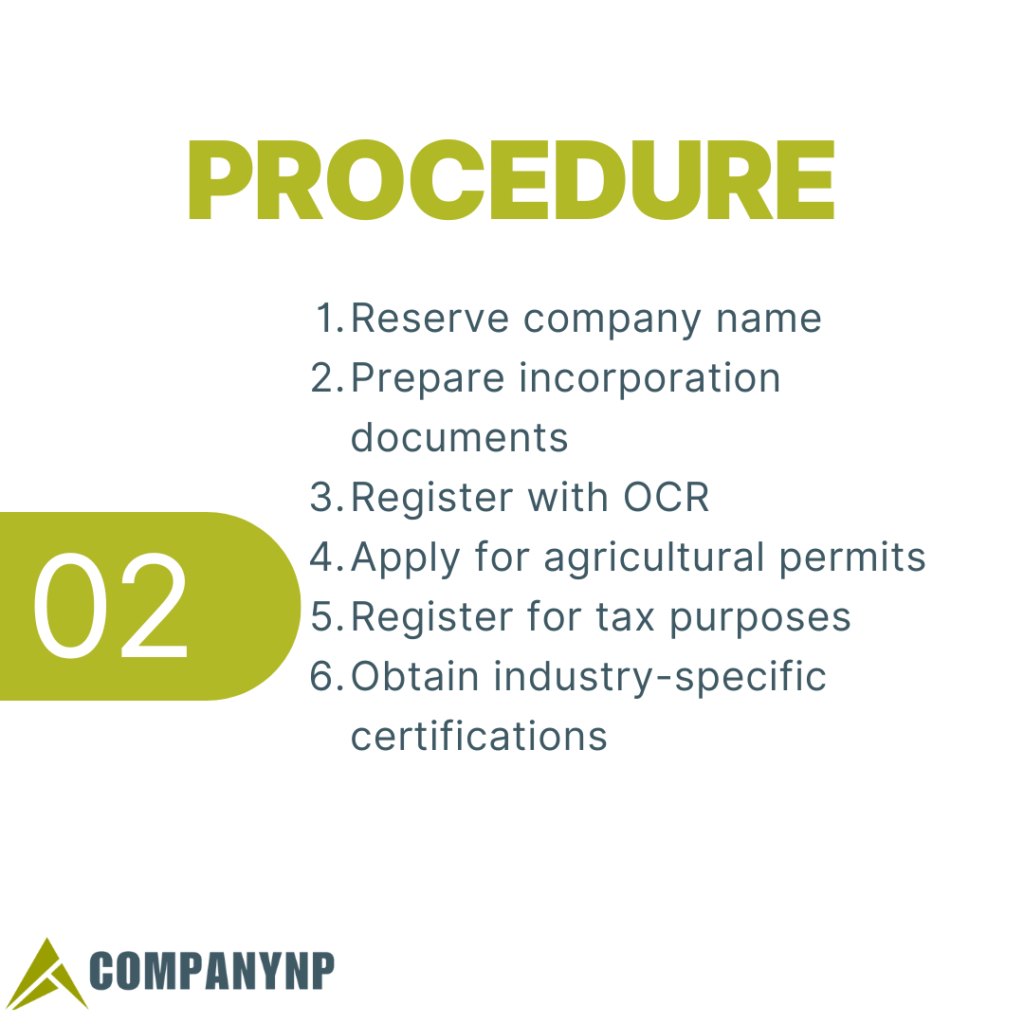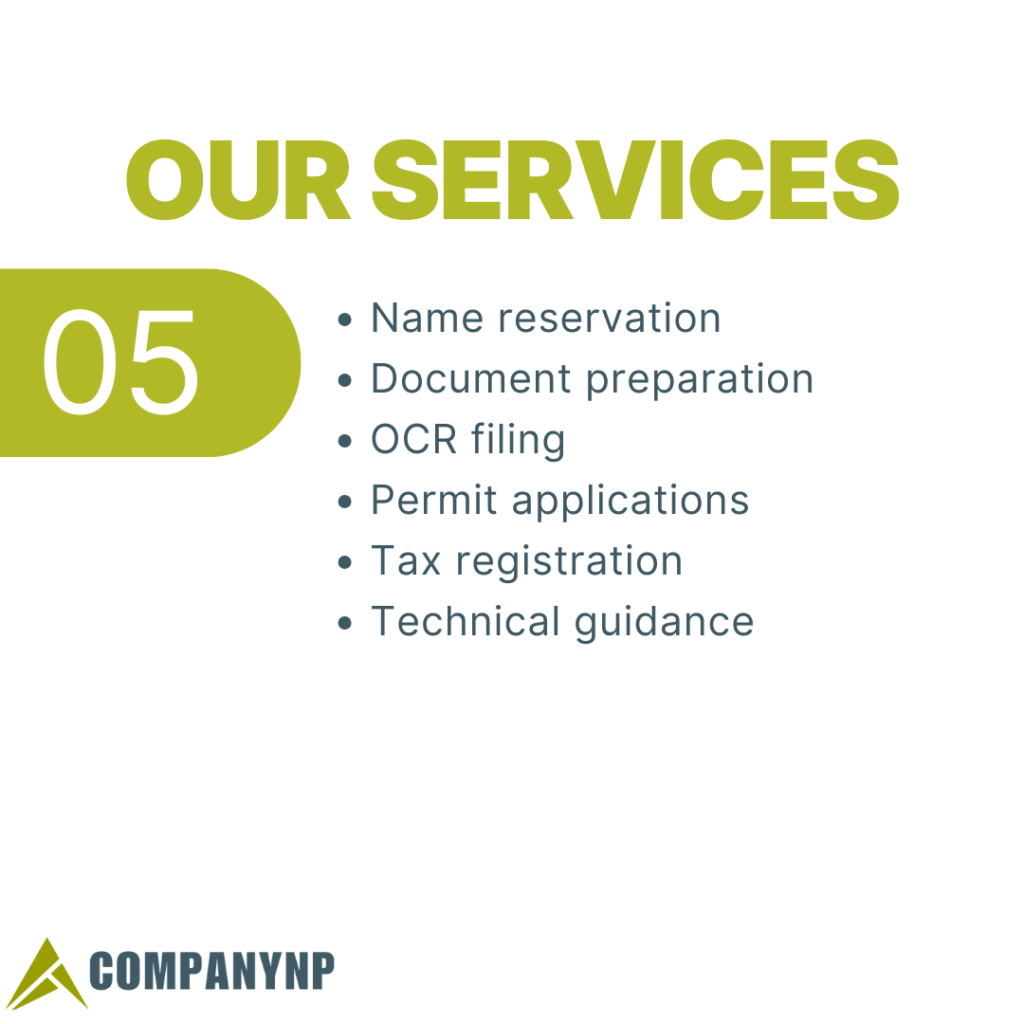This article will guide you through the process of registering an agriculture company in Nepal, covering everything from the basics to the specific requirements and benefits.
What is an Agriculture Company?
An agriculture company is a business entity that operates within the agricultural sector. These companies engage in various activities related to farming, livestock, forestry, and related services. In Nepal, agriculture companies can take different forms, including:
- Crop production enterprises
- Livestock and poultry farms
- Seed and fertilizer suppliers
- Agricultural machinery and equipment providers
- Food processing and packaging companies
- Agri-tech startups
These businesses contribute to food security, rural development, and economic growth in Nepal. By registering as a formal company, agricultural enterprises can access various benefits and operate within the legal framework of the country.
How to Register Agriculture Company in Nepal?
Agricultural company Registration process in Nepal
- Step 1: Choose the Business Structure and Name
- Step 2: Prepare Required Documents
- Step 3: Reserve the Company Name
- Step 4: Submit Registration Application
- Step 5: Register for PAN/VAT
- Step 6: Open a Bank Account and Start Operations

Step 1: Choose the Business Structure and Name
Decide whether your agriculture company will be a sole proprietorship, partnership, or private limited. Select a unique and meaningful company name that aligns with your business goals and complies with Nepal’s legal naming conventions.
Step 2: Prepare Required Documents
Gather necessary documents such as citizenship certificates of shareholders, a proposed Memorandum and Articles of Association, and passport-sized photographs. Ensure all documents are verified, complete, and ready for submission to the relevant authorities.
Step 3: Reserve the Company Name
Submit your chosen name to the Office of the Company Registrar for approval and reservation. The office will check for duplications and legal compliance before issuing a confirmation, allowing you to proceed with registration.
Step 4: Submit Registration Application
File the registration application with all required documents at the Office of the Company Registrar. Pay the applicable government fees based on your company’s capital, and await official approval and issuance of the registration certificate.
Step 5: Register for PAN/VAT
After registration, apply for a Permanent Account Number (PAN) or VAT registration at the Inland Revenue Office. This step is essential for tax compliance and for conducting any commercial or financial transactions legally.
Step 6: Open a Bank Account and Start Operations
Open a company bank account using your registration and PAN documents. Once the account is set up, you can begin financial transactions, acquire resources, and officially start operating your agriculture business in Nepal.
Why Register an Agriculture Company in Nepal?
Registering an agriculture company in Nepal offers numerous advantages:
- Legal recognition: Official registration gives your business a legal identity.
- Access to finance: Registered companies can more easily obtain loans and investments.
- Government support: Many agricultural subsidies and programs are available to registered companies.
- Market credibility: Registration enhances your company’s reputation with customers and partners.
- Tax benefits: Agricultural businesses often enjoy special tax incentives in Nepal.
- Export opportunities: Registered companies can more easily engage in international trade.
- Protection of intellectual property: Registration helps safeguard your business name and innovations.
By formalizing your agricultural business, you position yourself for growth and sustainability in Nepal’s evolving economic landscape.
Where to Register an Agriculture Company in Nepal?
In Nepal, the primary authority for company registration is the Office of Company Registrar (OCR). However, agricultural companies may need to register with additional bodies:
- Office of Company Registrar (OCR): This is the main agency for company incorporation.
- Department of Agriculture: For specific agricultural licenses and permits.
- Ministry of Agriculture and Livestock Development: For sector-specific approvals.
- Inland Revenue Department: For tax registration and PAN (Permanent Account Number).
- Local Municipality: For local business operating licenses.
It’s important to note that the exact registration requirements may vary depending on the nature and scale of your agricultural business. Consulting with a local legal expert or business consultant can help ensure you complete all necessary registrations.
What is the Process of Registering an Agriculture Company in Nepal?
The process of registering an agriculture company in Nepal involves several steps:
- Name Reservation: Submit a company name application to the OCR. Choose a unique name that reflects your agricultural business.
- Document Preparation: Gather all required documents, including memorandum of association, articles of association, and shareholder details.
- Application Submission: Submit the completed application form along with necessary documents to the OCR.
- Document Verification: The OCR will review your application and documents for completeness and accuracy.
- Fee Payment: Pay the required registration fees as per the company’s authorized capital.
- Certificate Issuance: Upon approval, the OCR will issue a Certificate of Incorporation.
- Post-Registration Steps: Obtain a PAN from the Inland Revenue Department and complete any sector-specific registrations with the Department of Agriculture or relevant ministries.
This process typically takes 2-4 weeks, depending on the completeness of your application and the efficiency of the government offices. It’s advisable to work with a local legal expert or business consultant to navigate the process smoothly and avoid potential delays.
Read More:
Foreign Director Appointment Process in Nepal
NGO Registration Process in Nepal
Real Estate Company Registration in Nepal
What Documents are Needed for Agriculture Company Registration?
To register an agriculture company in Nepal, you’ll need to prepare and submit the following documents:
- Application form for company registration
- Proposed company name (with alternatives)
- Memorandum of Association
- Articles of Association
- Copy of citizenship certificates of all promoters/shareholders
- Recent passport-sized photographs of all promoters/shareholders
- No Objection Letters from relevant authorities (if applicable)
- Lease agreement or ownership document of the company’s registered office
- Board resolution authorizing company registration (for corporate shareholders)
- Power of Attorney (if applying through a representative)
For agricultural companies, additional documents may be required:
- Land ownership or lease documents for farming activities
- Environmental clearance certificates (if applicable)
- Specific licenses related to agricultural activities (e.g., seed production, livestock farming)
Ensure all documents are properly filled out, signed, and notarized as required. Having these documents prepared accurately will help streamline the registration process.
How Long Does it Take to Register an Agriculture Company in Nepal?
The timeline for registering an agriculture company in Nepal can vary, but typically it takes about 2-4 weeks. This duration includes:
- Name reservation: 1-2 days
- Document preparation: 3-5 days
- Application processing at OCR: 7-10 working days
- Additional registrations (PAN, sector-specific): 5-7 days
Factors that can affect the timeline include:
- Completeness and accuracy of submitted documents
- Workload of government offices
- Complexity of your agricultural business model
- Need for additional approvals or licenses
To expedite the process, ensure all documents are prepared correctly and submit a complete application package. Working with experienced professionals can help avoid common pitfalls and delays in the registration process.
What is the Cost of Registering an Agriculture Company in Nepal?
The cost of registering an agriculture company in Nepal varies based on several factors:
- Registration fees: Based on authorized capital (ranges from NPR 9,500 to NPR 65,000)
- Name reservation fee: NPR 100
- PAN registration: NPR 500
- Lawyer or consultant fees: Varies (NPR 15,000 – NPR 50,000)
- Notary charges: Approximately NPR 500 – NPR 1,000
- Stamp duties: Varies based on document type and company capital
Additional costs may include:
- Sector-specific license fees
- Environmental clearance fees (if applicable)
- Local business operating license fees
The total cost can range from NPR 30,000 to NPR 100,000 or more, depending on the company’s size and specific requirements. It’s advisable to budget for these expenses and consult with a local expert for a more accurate estimate based on your specific agricultural business model.
What are the Post-Registration Requirements for an Agriculture Company?
After successfully registering your agriculture company in Nepal, there are several post-registration requirements to fulfill:
- Tax Registration: Obtain a Permanent Account Number (PAN) from the Inland Revenue Department.
- Bank Account Opening: Set up a corporate bank account for your agriculture company.
- Social Security Fund Registration: Register with the Social Security Fund if you plan to hire employees.
- Annual Filings: Submit annual returns and financial statements to the Company Registrar’s Office.
- Sector-Specific Compliance: Adhere to regulations set by the Ministry of Agriculture and Livestock Development.
- Local Business License: Obtain necessary permits from your local municipality.
- Environmental Compliance: Ensure adherence to environmental regulations, especially for large-scale agricultural operations.
Staying compliant with these post-registration requirements is crucial for the smooth operation of your agriculture company in Nepal. Regular consultation with legal and financial advisors can help ensure ongoing compliance.
What are the Specific Requirements for Agriculture Companies in Nepal?
Agriculture companies in Nepal must adhere to several specific requirements:
- Land Use Regulations: Comply with zoning laws and land use policies for agricultural activities.
- Seed and Plant Regulations: Follow guidelines for seed production, import, and distribution set by the National Seed Board.
- Pesticide and Fertilizer Control: Adhere to regulations on the use, import, and distribution of agricultural chemicals.
- Animal Health and Welfare: Comply with livestock farming regulations and animal welfare standards.
- Food Safety Standards: Meet food safety requirements for agricultural produce and processed goods.
- Labor Laws: Follow agricultural labor regulations, including seasonal worker provisions.
- Water Usage Rights: Obtain necessary permissions for irrigation and water usage in farming activities.
These requirements aim to ensure sustainable and responsible agricultural practices in Nepal. Staying informed about these regulations and adapting your business practices accordingly is essential for long-term success in the Nepalese agricultural sector.
What are the Benefits of Registering an Agriculture Company in Nepal?
Registering an agriculture company in Nepal offers numerous benefits:
- Access to Government Schemes: Registered companies can benefit from various agricultural subsidies and support programs.
- Financial Opportunities: Easier access to loans, grants, and investments from banks and financial institutions.
- Legal Protection: Registration provides a legal framework for your business operations and dispute resolution.
- Market Expansion: Ability to participate in government tenders and expand into formal markets.
- Tax Incentives: Agricultural businesses often enjoy special tax benefits and exemptions in Nepal.
- Credibility and Trust: Registration enhances your company’s reputation with customers, suppliers, and partners.
- International Trade: Easier participation in export activities and international agricultural markets.
By registering your agriculture company, you position yourself to take full advantage of Nepal’s growing agricultural sector while contributing to the country’s food security and economic development. The formal status also provides a solid foundation for scaling your agricultural business in the future.
What are the steps to register an agriculture company in Nepal?
To register an agriculture company in Nepal:
1. Choose a business name
2. Prepare required documents
3. Submit application to Company Registrar’s Office
4. Obtain PAN and VAT registration
5. Register with relevant agriculture authorities
What documents are required for agriculture company registration in Nepal?
Documents for agriculture company registration:
1. Memorandum of Association
2. Articles of Association
3. Citizenship copies of shareholders
4. Passport-sized photos
5. Proposed company name
6. Proof of office address
7. Initial capital deposit slip
How much does it cost to register an agriculture company in Nepal?
The cost to register an agriculture company in Nepal varies based on capital and business type. Generally, it ranges from NPR 15,000 to NPR 50,000, including government fees and professional charges.
How long does it take to register an agriculture company in Nepal?
Registering an agriculture company in Nepal typically takes 2-4 weeks. The process may be longer if additional permits or licenses are required for specific agricultural activities.
Can a foreign national register an agriculture company in Nepal?
Yes, foreign nationals can register an agriculture company in Nepal. However, they must comply with foreign investment regulations and obtain necessary approvals from the Department of Industry.
What types of agriculture businesses can be registered in Nepal?
Agriculture businesses that can be registered in Nepal include:
1. Crop farming
2. Livestock rearing
3. Horticulture
4. Aquaculture
5. Agro-processing
6. Seed production
7. Organic farming
8. Agricultural consultancy
What is the minimum capital required to register an agriculture company in Nepal?
The minimum capital required to register an agriculture company in Nepal is NPR 100,000 for private limited companies. However, the amount may vary depending on the specific type of agricultural business.
Contents
- 1 What is an Agriculture Company?
- 2 How to Register Agriculture Company in Nepal?
- 3 Why Register an Agriculture Company in Nepal?
- 4 Where to Register an Agriculture Company in Nepal?
- 5 What is the Process of Registering an Agriculture Company in Nepal?
- 6 What Documents are Needed for Agriculture Company Registration?
- 7 How Long Does it Take to Register an Agriculture Company in Nepal?
- 8 What is the Cost of Registering an Agriculture Company in Nepal?
- 9 What are the Post-Registration Requirements for an Agriculture Company?
- 10 What are the Specific Requirements for Agriculture Companies in Nepal?
- 11 What are the Benefits of Registering an Agriculture Company in Nepal?








